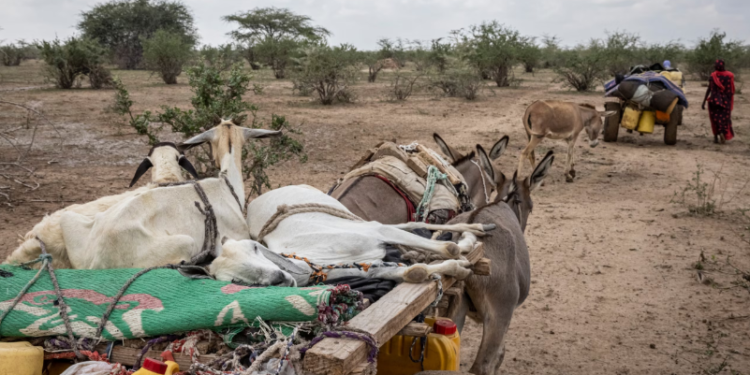Oct 15, 2024 Story by: Editor
Millions across Southern Africa are facing severe hunger due to a historic drought, which the United Nations has warned could lead to a full-scale humanitarian crisis.
Countries like Lesotho, Malawi, Namibia, Zambia, and Zimbabwe have declared states of national disaster in recent months as the drought has decimated crops and livestock. Angola and Mozambique are also suffering greatly, according to the UN’s World Food Programme (WFP). The crisis is expected to worsen until the next harvest, which is projected for March or April 2025.
“A historic drought – the worst food crisis yet – has devastated more than 27 million lives across the region,” said WFP spokesperson Tomson Phiri. “Some 21 million children are malnourished.”
Phiri added, “October in Southern Africa marks the start of the lean season, and each month is expected to be worse than the previous one until harvests next year in March and April. Crops have failed, livestock have perished, and children are lucky to receive one meal per day.”
Millions of people in the region depend on small-scale agriculture, which relies heavily on rainfall for food production and income.
Last year, aid agencies had already issued warnings of a potential disaster as the El Niño weather phenomenon caused below-average rainfall across the region. The effects of El Niño have been exacerbated by rising temperatures linked to climate change.
In July, a UN official described the situation as the worst drought to hit the region in a century. In Zambia, 70% of the harvest has been lost, and in Zimbabwe, the figure is as high as 80%, according to WFP’s acting regional director for Southern Africa, Lola Castro.
In addition to destroying crops, the drought has also severely reduced hydropower generation in the region, causing widespread power outages. Meanwhile, Zimbabwe and Namibia have resorted to wildlife culling to ease the strain on resources. Authorities in both countries have begun killing wildlife, including elephants, to provide meat for those in need.
Scientists point out that sub-Saharan Africa is particularly vulnerable to climate change due to its reliance on rain-fed agriculture and natural resources. Millions of livelihoods across the continent are tied to the climate, but poor countries often lack the resources to implement climate-resilience measures.
Experts have also warned that climate change-induced droughts and unpredictable rainfall are impacting the yield, growth, flavor, and harvest timing of many crops in the region. Source: Al Jazeera

















